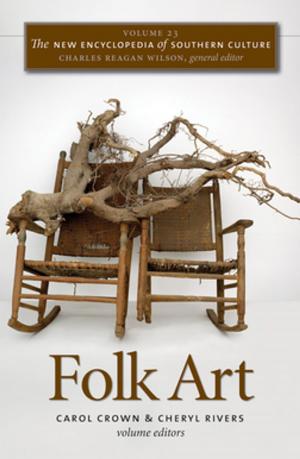Blood and Irony
Southern White Women's Narratives of the Civil War, 1861-1937
Fiction & Literature, Literary Theory & Criticism, Women Authors, Nonfiction, History, Americas, United States, Civil War Period (1850-1877)| Author: | Sarah E. Gardner | ISBN: | 9780807861561 |
| Publisher: | The University of North Carolina Press | Publication: | July 21, 2004 |
| Imprint: | The University of North Carolina Press | Language: | English |
| Author: | Sarah E. Gardner |
| ISBN: | 9780807861561 |
| Publisher: | The University of North Carolina Press |
| Publication: | July 21, 2004 |
| Imprint: | The University of North Carolina Press |
| Language: | English |
During the Civil War, its devastating aftermath, and the decades following, many southern white women turned to writing as a way to make sense of their experiences. Combining varied historical and literary sources, Sarah Gardner argues that women served as guardians of the collective memory of the war and helped define and reshape southern identity.
Gardner considers such well-known authors as Caroline Gordon, Ellen Glasgow, and Margaret Mitchell and also recovers works by lesser-known writers such as Mary Ann Cruse, Mary Noailles Murfree, and Varina Davis. In fiction, biographies, private papers, educational texts, historical writings, and through the work of the United Daughters of the Confederacy, southern white women sought to tell and preserve what they considered to be the truth about the war. But this truth varied according to historical circumstance and the course of the conflict. Only in the aftermath of defeat did a more unified vision of the southern cause emerge. Yet Gardner reveals the existence of a strong community of Confederate women who were conscious of their shared effort to define a new and compelling vision of the southern war experience.
In demonstrating the influence of this vision, Gardner highlights the role of the written word in defining a new cultural identity for the postbellum South.
During the Civil War, its devastating aftermath, and the decades following, many southern white women turned to writing as a way to make sense of their experiences. Combining varied historical and literary sources, Sarah Gardner argues that women served as guardians of the collective memory of the war and helped define and reshape southern identity.
Gardner considers such well-known authors as Caroline Gordon, Ellen Glasgow, and Margaret Mitchell and also recovers works by lesser-known writers such as Mary Ann Cruse, Mary Noailles Murfree, and Varina Davis. In fiction, biographies, private papers, educational texts, historical writings, and through the work of the United Daughters of the Confederacy, southern white women sought to tell and preserve what they considered to be the truth about the war. But this truth varied according to historical circumstance and the course of the conflict. Only in the aftermath of defeat did a more unified vision of the southern cause emerge. Yet Gardner reveals the existence of a strong community of Confederate women who were conscious of their shared effort to define a new and compelling vision of the southern war experience.
In demonstrating the influence of this vision, Gardner highlights the role of the written word in defining a new cultural identity for the postbellum South.















